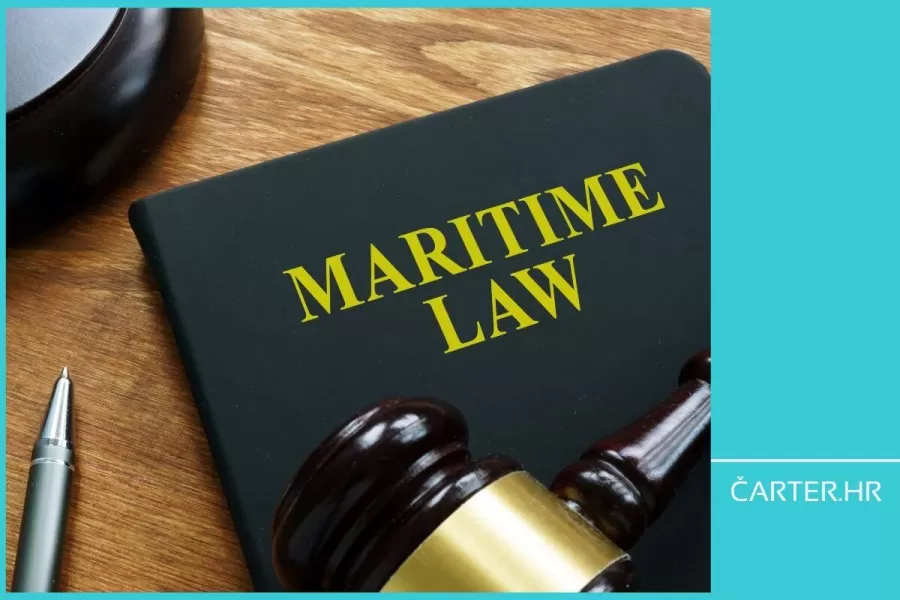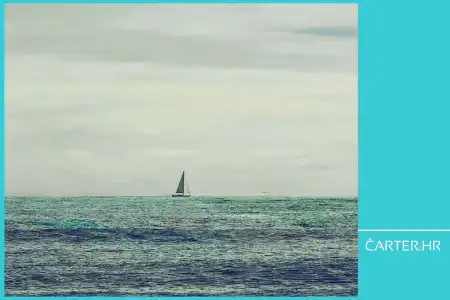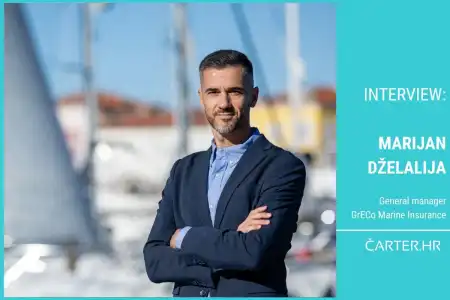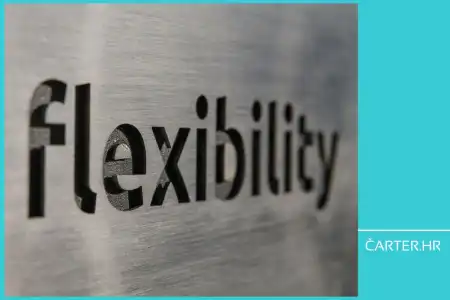
- 25.07.2023.
- News, Regulations
Croatian maritime law, like any other, is full of "traps" that need to be recognized. The Croatian legislation has specific regulations concerning safety standards, environmental protection, vessel registration and others. Therefore, monitoring changes in maritime law is crucial.
The maritime industry in Croatia is continuously growing, attracting numerous investors and entrepreneurs who want to use its potential. However, like in any sector, there are pitfalls and challenges that need to be avoided in order to operate successfully in accordance with Croatian maritime law.
In this article, we will consider several key steps that entrepreneurs can take to avoid these pitfalls and ensure successful operations in the maritime sector.
Strategies for avoiding pitfalls in the application of Croatian maritime law
Croatian legislation has specific requirements for vessel registration. Entrepreneurs who own vessels or plan to acquire new ones need to familiarize themselves with the registration process and requirements concerning identification markings, technical standards, and safety certificates. Additionally, it is essential to ensure that all documents and licenses related to ship registration are up-to-date and valid.
Navigation safety is a crucial aspect of maritime legislation. Entrepreneurs should be familiar with international conventions and regulations, such as SOLAS (International Convention for the Safety of Life at Sea), which prescribe standards for safety systems, equipment, and procedures on vessel. Understanding national laws and regulations applicable in Croatia is also necessary to ensure navigation safety, including crew training requirements, navigation rules, signaling, and communication procedures.
The maritime industry has a significant impact on the environment, which is why laws and regulations concerning environmental protection are important for entrepreneurs. Croatia has specific rules regarding the protection of the sea, coastal areas, and biodiversity. Entrepreneurs need to be aware of these regulations, including restrictions related to waste disposal and pollution, to ensure the sustainability of the maritime sector and protect the marine environment.
Rules on working conditions and social protection are also essential areas to consider. Croatian legislation includes provisions on seafarers' working conditions, including working hours, accommodation and catering conditions, as well as health and safety provisions onboard. Entrepreneurs must be aware of these laws and provide appropriate conditions for their crew to comply with labor standards and ensure the well-being of seafarers.
It is important to emphasize that legislation can change over time, so it is necessary to regularly monitor changes in the laws and regulations. Entrepreneurs should stay informed about the latest amendments to laws and regulations to ensure that their activities and operations comply with the most recent legal requirements. Participating in relevant workshops, seminars, or consultations can be beneficial for keeping knowledge about maritime legislation and its applications up to date.

Contracts are crucial for every business relationship in the maritime industry and play a vital role in ensuring legal security and protecting the interests of all parties involved. Here is a detailed overview of several aspects that are important when entering into contracts in the maritime industry to avoid unpleasant surprises and legal issues.
→ Clear definition and formulation - every contract in the maritime industry should have clearly defined and understandable clauses and terms. A comprehensive definition of the obligations, rights, and responsibilities of all parties involved in the contract helps avoid misunderstandings and interpretations. It is important for the contract to be sufficiently specific and precise in order to avoid ambiguous interpretations and enable consistent fulfillment of obligations.
→ Fairness and balance - contracts in the maritime industry should be fair to all parties involved. Each party should be protected from unfair terms or imbalances during negotiations. When negotiating a contract, it is important to ensure that the interests of all parties are adequately represented and that a fair balance between obligations and benefits is achieved.
→ Review of all clauses - before signing a contract, it is crucial to thoroughly review all clauses and terms. Careful analysis of provisions related to payment, insurance, liability, transportation, disputes, and contract termination is necessary. Pay special attention to provisions regarding risk insurance, liability limitations, and damages to ensure that your interests are protected.
→ Legal support - when dealing with complex contracts in the maritime industry, it is beneficial to consult a legal expert familiar with maritime law. A lawyer can provide professional opinions and advice on the validity and applicability of the contract, as well as potential legal risks and implications. Legal support helps ensure that all legal aspects of the contract are covered and properly applied.
→ Negotiation skills - quality negotiation skills are crucial when signing contracts in the maritime industry. It is essential to be aware of one's own goals while also being open to reasonable proposals and compromises. Skillful negotiation can result in better terms and solutions that reflect the interests of all parties involved.
→ Updating contracts - contracts in the maritime industry need to be dynamic and updated to adapt to changing circumstances and legal requirements. It is important to regularly review and update contracts to ensure their applicability and validity in light of changes in the industry, technology, and legislation.
Reviewing, carefully defining, and negotiating are key steps to avoid pitfalls in Croatian maritime law. Ensuring clear formulation, fair terms, regular reviews, and, if necessary, engaging legal support, help establish strong foundations for successful and lawful business relationships in the maritime sector.

The maritime industry comes with various risks and challenges, including accidents at sea, loss or damage of cargo, and disputes between shipowners and insurers. To protect against these risks and minimize potential losses, it is crucial to have adequate insurance coverage.
The maritime industry is rapidly evolving and undergoing significant changes, including technological innovations, environmental protection, and safety standards. To be successful in this sector, it is essential for entrepreneurs to regularly educate themselves about the latest trends and practices to adapt to these changes. Attending seminars, conferences, and educational programs plays a crucial role in keeping entrepreneurs informed about the latest developments in maritime law and enables them to adjust their business accordingly.
Continued education and staying informed about the latest trends and practices in the maritime industry are key to successful operations. Attending seminars, conferences, and educational programs allows entrepreneurs to stay informed about technological innovations, environmental protection, safety standards, and changes in legislation. This enables them to adapt their business, improve their operations, and remain competitive in the dynamic maritime sector.

Examples of good practices in the management and application of Croatian maritime law
Examples of good practices in the management and application of Croatian maritime law include strict adherence to international conventions and regulations concerning navigation safety and environmental protection. Croatia has established effective monitoring and inspection systems to ensure compliance with maritime regulations.
Furthermore, Croatia actively participates in international maritime organizations to contribute to the development of new and updated legal frameworks for safety, environmental protection, and the management of maritime resources.
Additionally, promoting education and training for seafarers is a good practice in managing Croatian maritime law, ensuring a high level of expertise and professionalism in the maritime sector.
Systematic monitoring and assessment of the effectiveness of maritime regulations' implementation, along with continuous collaboration between relevant authorities, shipowners, and seafarers, are also key elements of good practice in managing and applying Croatian maritime law. This integrated approach helps preserve safety and protect the maritime environment, positioning Croatia as a responsible and modern participant in the global maritime community.
Perspectives and recommendations for improving Croatian maritime law
Croatian maritime law plays a crucial role in regulating the maritime industry in Croatia. To ensure further improvement, there are some perspectives and recommendations that could be considered.
Modernization of legislation. Given the rapid technological advancements and changes in the maritime industry, it is recommended to conduct a thorough review and modernization of maritime legislation. This would involve revising existing laws and regulations to ensure their relevance and alignment with international standards. Additionally, the introduction of new laws addressing emerging technological innovations, environmental protection, and safety standards should be considered.
Enhanced collaboration with relevant participants. To improve Croatian maritime law, maintaining open communication and collaboration with relevant stakeholders in the maritime industry is vital. This includes maritime carriers, shipping companies, insurers, unions, environmental experts, and others. Through dialogue and cooperation, key issues and challenges facing the maritime industry can be identified, and tailored solutions can be developed.
Establishment of legal certainty and predictability. One of the key aspects of improving Croatian maritime law is ensuring legal certainty and predictability. This can be achieved by clearly defining laws and regulations, avoiding excessive regulation, and providing clear guidelines and interpretations of legal provisions. Legal certainty enables entrepreneurs in the maritime sector to plan their activities, investments, and operations with confidence.
Education and training. Improving maritime law also requires strengthening education and training in this field. This includes ensuring quality educational programs that cover relevant aspects of maritime law and providing educational resources and materials for professional development in the maritime industry. Educational institutions and professional associations can play a crucial role in providing continuous education, seminars, and conferences on maritime law.
Promotion of sustainability. Considering the increasing importance of sustainability in the maritime industry, promoting sustainable practices in Croatian maritime law is recommended. This includes adopting stricter regulations and standards for environmental protection, encouraging the use of eco-friendly technologies, promoting sustainable methods of maritime transportation, and fostering corporate responsibility within the sector.
An efficient judicial system. Improving Croatian maritime law also requires an efficient judicial system capable of providing timely and fair decisions in disputes related to the maritime industry. This includes ensuring adequate resources, expertise, and specialization within the judicial system to enable swift and quality resolution of maritime disputes.
The mentioned perspectives and recommendations can contribute to the improvement of Croatian maritime law. Through continuous monitoring, revision, and adaptation of legal frameworks, collaboration with relevant participants, ensuring legal certainty and education, it is possible to enhance the regulatory framework of the maritime industry in Croatia and support further sector development.
Categories of trends
- News
- Sale
- Marketing
- SEO
- Web design
- Social media
- Technology
- Regulations
- Management
- Education
- Finances
- User experience
Newsletter
Sign up for the newsletter and receive the latest trends and tips straight to your inbox




